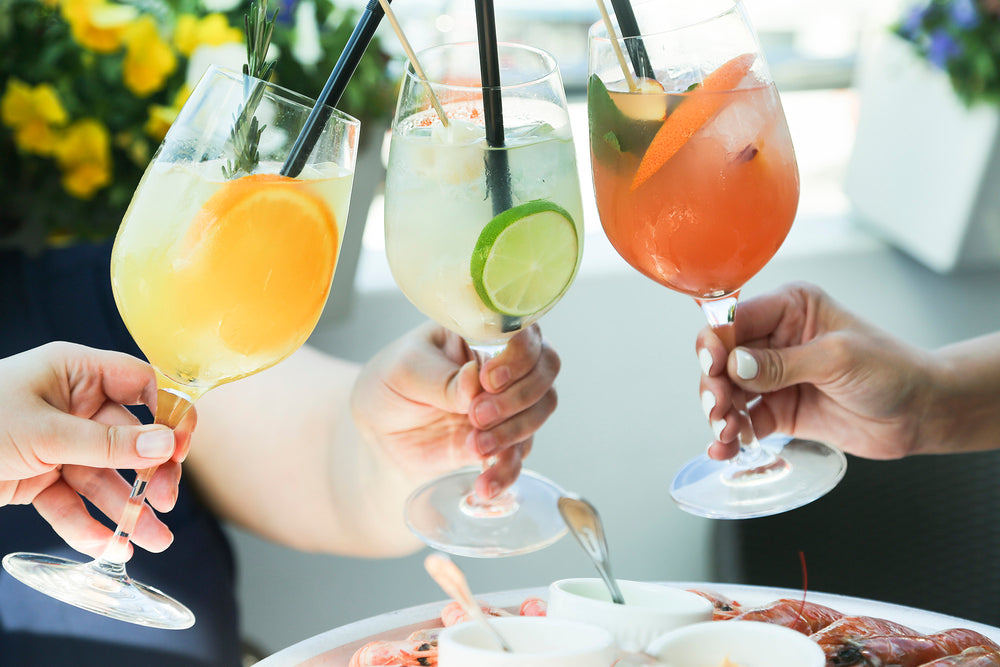Boost Your Fitness Goals by Cutting Back on Alcohol

When it comes to levelling up your fitness game, we often focus on the obvious: consistent workouts, a clean diet, proper hydration, and good sleep. But there’s one often-overlooked factor that can silently sabotage your progress—alcohol. Reducing or eliminating alcohol can have a powerful impact on your physical and mental performance, helping you get closer to your fitness goals faster than you might think.
1. Alcohol Sabotages Muscle Recovery and Growth
Every time you hit the gym, you’re creating tiny tears in your muscles. Recovery is when those muscles repair and grow stronger. But alcohol can interfere with this process in several ways:
Disrupts protein synthesis: Alcohol reduces your body’s ability to synthesize protein, the key nutrient for muscle repair.
Lowers testosterone: Testosterone plays a major role in muscle development, and alcohol can reduce its levels significantly.
Increases cortisol: Cortisol is a stress hormone that breaks down muscle tissue. Alcohol consumption spikes this hormone, making it harder to gain lean muscle.
2. It Adds Empty Calories
Even just a few drinks can blow your daily calorie budget:
- A glass of wine has about 120 calories.
- A pint of beer? Roughly 150–200.
- Cocktails? They can top 300+ calories each.
These are “empty” calories—offering no nutritional benefit. If you’re working hard to maintain a calorie deficit or balance your macros, alcohol can derail your progress without you even realising it.
3. Impacts Sleep Quality
Rest is where recovery happens. Even if alcohol helps you fall asleep faster, it reduces REM sleep—the deep, restorative kind your body needs. Poor sleep affects everything from energy levels and focus to appetite control and workout performance.
4. Dehydrates Your Body
Alcohol is a diuretic, meaning it causes your body to lose more water than it takes in. This can lead to:
- Muscle cramps and joint stiffness
- Reduced endurance
- Sluggish performance
Proper hydration is key to high-performance training. If you’re dehydrated, your energy levels and ability to recover plummet.
5. Weakens Mental Discipline
Fitness success isn’t just physical—it’s also mental. Alcohol impairs judgment and lowers inhibition, making it easier to skip workouts or indulge in poor food choices. After a few drinks, your well-planned fitness routine can unravel into a night of pizza and Netflix instead of meal prep and sleep.
How to Cut Back Without Feeling Deprived
You don’t have to quit drinking altogether to see results. Even moderate reductions can lead to big improvements in energy, strength, and overall wellness. Here are some tips:
Set clear limits: Choose specific days or events when you'll drink, and skip the rest.
Choose lighter options: If you drink, go for lower-calorie drinks like a vodka soda or light beer.
Try mocktails: Non-alcoholic alternatives have exploded in popularity and can help you enjoy social occasions without the side effects.
Track your progress: Keep an eye on how your workouts, sleep, and mood improve as you reduce alcohol.
The Bottom Line
Cutting back on alcohol is one of the most underrated ways to enhance your fitness journey. It sharpens your focus, improves your recovery, supports muscle growth, and gives you more control over your diet. You don’t need to be perfect—but being mindful about your intake can be a game-changer.
Ready to level up? Ditch the drinks (even just a few) and let your fitness goals take the spotlight.







